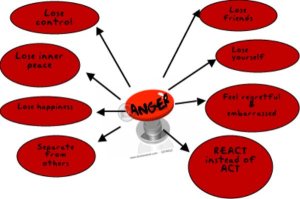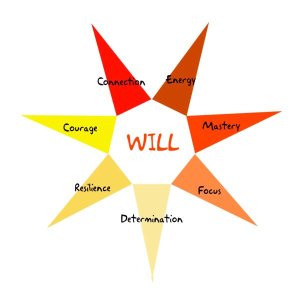Social and Emotional Curriculum: Self-Mastery
Finding a place for anger
Your content has been saved!
Go to My Saved Content.Self-Mastery: Finding a Place for Anger
Self-mastery is a key to happiness. Working with your emotions is so much better than being ruled by them.
The Anger Button
Anger has two faces. It can inform us that something's not right and inspire us to stand up for ourselves or for someone else. It can also trigger us to act unconsciously. This hot button type of anger is more intense and does not serve anyone. How often do you see your students with their anger button activated, sending out ripples to those around them? With raging anger, no one wins.

It is extremely difficult to concentrate when one is angry -- or overwhelmed by any emotion. Here are a few ways to move from reaction to response, from chaos to kindness, and from feeling like a victim to remembering your innate strengths.
1) The Power of the Pause
When stress is on the rise, try to pause. New research from neuroscientist Richard Davidson shows that breathing techniques and meditation have had effective results on controlling one's emotions.
Dr. Davidson shares, "Simple meditation techniques, backed up with modern scientific knowledge of the brain, are helping kids hardwire themselves to become kinder and pay better attention. To improve a child's ability to pay attention, and also improve their studying abilities, a stone is put on a child's belly, and they learn to focus on their breathing as the stone goes up and down." By having students take at least five deep breaths in a stressful situation, you can teach them to respond mindfully instead of just reacting.
2) Kindness Is Possible
"To foster kindness in teenagers," he continues, "students are asked to visualize a loved one suffering followed by a thought that they be relieved of that suffering. This is extended to difficult people as well." According to Davidson, these exercises have been shown to produce meaningful changes in the brain and behavior.
3) The Power of Words
In the shadow of bullying and cyber-bullying, it's more important than ever to take notice of the words that people use to communicate. Words create worlds. Here are some questions to have your students consider:
- Do my words hurt or harm?
- Am I making things better or worse when I speak to others?
- With my words, am I connecting people or am I alienating them from me and from each other, even inadvertently?
- What energy do I give off in what I say and how I say it?
- What kind of exchanges do I have with friends and family?
- How do my usual conversations make me feel? How can they be better?
It's interesting to observe if the people around you:
- Thrive on gossip and drama
- Talk non-stop to avoid facing feelings
- Exaggerate to impress others
- Lie to avoid conflict
- Manipulate or avenge others with words
If the goal is happiness, connection and a feeling of peace, you will want your students to be more aware of the repercussions of their words. Consider having them track their words and their effect on others, even for one day.
4) The Power of Will
The good thing about will is that we were all born with it. A baby doesn't give up when learning to walk. We ALL have will within us. Here are some inner qualities that you already have which you can draw upon:

- Energy: Think of the energy athletes exert in a championship game compared to one in the regular season.
- Mastery: Any musician knows the amount of practice and skill it takes to master the basics so that they can really express themselves through their instrument.
- Focus: Laser focus can expedite any task. When hours go by and feel like minutes, you know you are in your focused zone -- it's also called being in a "flow" state.
- Determination: Even in the most chaotic situation, your determination to find a solution and meet your goal can carry you through. Edison tried thousands of experiments. Determination can make you unstoppable!
- Resilience: Anyone who has been bullied or harassed by others knows the amount of will it takes to get in the game yet again. Resilience, through self-compassion, helps you bounce back.
- Courage: When you're feeling low and you have to "show up" somewhere -- whether to give a speech, start a new project or apologize -- this takes courage! It definitely gets easier as you jump in.
- Connection: Connecting with ourselves, with others and with something greater (however that is defined) are all powerful ways to reinforce will.
We already have all these qualities living inside, ready to be activated. To gain greater access, consciously draw upon the aspect most useful at the time. You may be pleasantly surprised at what you discover.
Questions for Reflection
What aspect of will do you find most useful?
How do you deal with anger or mean-spiritedness in the classroom?
How can we bring greater awareness to our thoughts and how they effect our emotions?